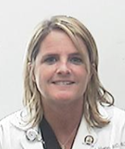
 Quality/Infection Prevention
Quality/Infection Prevention
This chart describes common diseases and appropriate isolation precautions. Please note that COVID-Crisis isolation has been driven by hospital limitations on number of isolation rooms available.
Clinic patients should be in a single exam room with door closed and appropriate door signage.
Detailed guidance is in the Infection Prevention Quick Reference Guide, which can be accessed through the Harris Health Document Control Center on the intranet.
 For HCMS Members
For HCMS Members
On April 3, Harris County Medical Society (HCMS) members received an email from HCMS, asking you to participate in the 2022 HCMS Physicians’ Hospital Survey, soliciting physician feedback on 43 Greater Houston area hospitals, including Ben Taub Hospital and Lyndon B. Johnson Hospital. The email included a customized link. However, you can also click here to access the survey.
You will be asked to provide feedback on issues related to Quality of medical care; Hospital policies and administration; Medical staff issues; and Electronic Medical Records. Individual responses are anonymous and will be pooled into aggregate summaries that will compare data across hospitals and systems. The ultimate goal of the survey is to improve patient care. The final results will be shared with physicians, hospital administrators and the media. The data is administered and owned by HCMS. Physicians who complete the survey will be entered to win one of five gift certificates from the Apple Store valued at $400.
If you have questions about the survey, please call HCMS at 713-524-4267 or you may reach Dexter Turnquest, MD (HCMS President) at dturnquest@hcms.org. You are also welcome to visit the HCMS website for additional information about this and past surveys.
 Physician Efficiency Tips
Physician Efficiency Tips
Create order panels
Save time searching for orders that you commonly place together, such as a set of labs. Instead of searching one-by-one for these orders, create an order panel.
- Within a patient's chart, search for the orders that you would like in the order panel.
- After the orders are queued up for signing, click Options and select Create Panel.
- In the Display name field, enter an easy-to-remember name for the panel.
• Optionally, in the Section field, enter the section of your preference list in which you want this order to appear. Or, click New to add another section to your list. - If needed, edit the details of each order.
- Click Accept.
- To use your order panel in a patient's chart, search for the order panel on your preference list by completion matching or browsing, just as you would for an individual order.
Edit or make a copy of an order panel
After you've created an order panel, you can update order details or remove orders from it. You can also create a copy of the order panel and make updates to it.
- Click
 in the Visit Taskbar, and select the Only Favorites check box.
in the Visit Taskbar, and select the Only Favorites check box. - Right-click the order panel.
a) To edit the current order panel, select Edit Preference List Entry.
b) To create a copy of the order panel, select Add to Preference List and choose a list to put the copy on.

3. Add an order, edit order details or remove orders.
 Research Spotlight
Research Spotlight
Targeting HIV Retention and Improved Viral load through Engagement (THRIVE)
By Thomas Giordano, MD
Baylor College of Medicine
People with HIV need regular medical care to stay healthy, but to date, there are no interventions that help people who are out of HIV care get back into care. Even when they are hospitalized, people who are not already in HIV care have a hard time following up with Thomas Street Health Center. Yet these are among the most important patients to retain in care because they are often very sick. Our previous research shows that people with HIV who are out of care and hospitalized frequently describe avoidance (not wanting to confront the fact that they have HIV), stigma, and mental health difficulties as very common challenges to getting back into HIV care after discharge. Acceptance and Commitment Therapy (ACT) is a transdiagnostic mental health treatment approach that addresses a range of psychosocial and behavior-related issues that people with HIV experience. ACT helps patients overcome avoidance, particularly avoidance of uncomfortable internal states and the situations that trigger such states, by promoting acceptance-based coping and re-engagement in meaningful and valued-life activities. ACT has not been tried in hospitalized people with HIV who are out of regular HIV care.
My colleague, Dr. Lilian DIndo, a BCM psychologist, and I were funded by the NIH to develop, refine, and pilot a brief (4-5 contact hours) ACT intervention for hospitalized, out-of-care people with HIV. ‘Targeting HIV Retention and Improved Viral load through Engagement’ (‘THRIVE’) aims to help patients overcome avoidance, a maladaptive coping strategy that contributes to a range of problems, including depression, anxiety, substance abuse, and HIV-related self-stigma, all of which are barriers to on-going HIV care. We are delivering THRIVE in the hospital with a phone booster session after discharge to increase therapy initiation and completion, the lack of which is often the greatest obstacle to effective delivery of mental health services for people with HIV. The study is being conducted in 2 phases, first we drafted materials for a therapist to use and a handbook for patients to use. We will try these out on about 15 patients to get their feedback. Next we will conduct a randomized small pilot study of 70 patients to see if we can do the study and learn more about THRIVE's possible benefits.
At the end of this 3 year project, we will have determined the feasibility and acceptability of THRIVE. We will then be positioned to submit a separate application to NIH for a grant to test the efficacy of THRIVE in a fully powered randomized trial. This work has the potential to decrease HIV morbidity and racial/ethnic disparities and contribute to ending the HIV epidemic in the United States, which are NIH priorities.
Physician Kudos
Ben Taub Hospital
“My surgeon Dr. Moore was the best, most caring and informative doctor I have ever seen or heard of. She came and checked my progress every day twice a day and made sure I had everything I needed and assistance. She should be teaching surgical & patient care!”
—BT Surgical-Critical Care Patient
 |
Laura Jane Moore, MD |
Lyndon B. Johnson Hospital
“The doctors and staff were very compassionate and made sure I was very comfortable and knowledgeable of what was going on with my surgery, before, during and after (very thorough). Also my daughter was included on everything as well. They also made sure I wasn't released until everything was looking satisfactory and done. I'm home now re-cooperating, so far so good! Can't wait for my follow up on Monday to see how everything is. Dr. Solafa is a very good ob/gyn surgeon, she explains everything very clearly and very understandable! thank you very much!”
— LBJ OR/PACU Patient
 |
Solafa Elshatanoufy, MD |
Baytown Health Center
“Dr. Aboughali is the best doctor I've ever had, and I'm 50 years old and he is awesome. Thank you.”
— Baytown Health Center Patient
 |
| Wael Ata Aboughali, MD |
Thank you for your service!